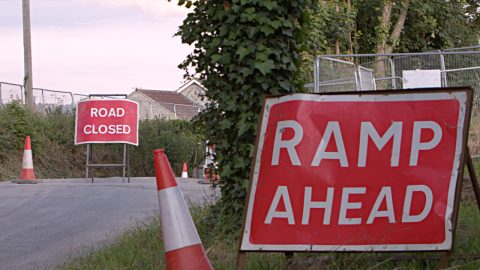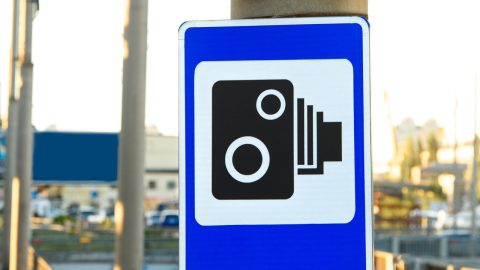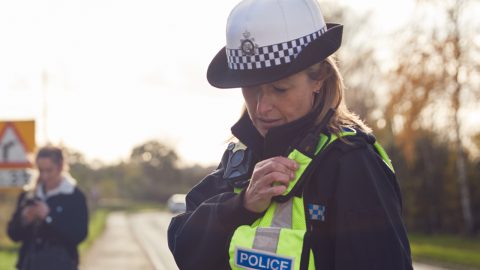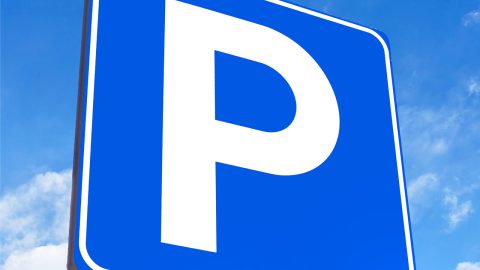In the UK, disputing a speeding ticket involves a specific process, often beginning with a Notice of Intended Prosecution (NIP) and leading potentially to a court hearing.
Join us on the journey of exploring our comprehensive step-by-step guide to disputing a speeding ticket:
Step 1: Review the Notice of Intended Prosecution (NIP)
- Time Frame: You should receive the NIP within 14 days of the alleged offence. It’s important to carefully read the details, including the date, time, and location of the alleged speeding.
- Accuracy Check: Verify that the details on the NIP match your recollection and records (e.g., were you in the area at the time?).
Step 2: Respond to the NIP
- Identify the Driver: You’re required to inform the authorities who was driving at the time of the alleged offence within 28 days. Failure to do so could lead to additional penalties.
- Consider Legal Advice: If you believe there has been a mistake, or if there are extenuating circumstances, now might be a good time to seek legal advice.
Step 3: Assess Your Options
Upon identifying the driver, you’ll typically be offered a Fixed Penalty Notice (FPN) or a speed awareness course if your speeding was minor and you haven’t attended a course in the past three years. If you wish to dispute the ticket:
- Evidence Gathering: Collect any evidence that supports your case, such as photographs of the location, witness statements, or proof of incorrect signage.
- Mitigating Circumstances: Prepare an explanation if there were mitigating circumstances (e.g., medical emergency).
Step 4: Request Evidence
- You have the right to request the evidence against you, which may include speed camera data, calibration certificates for the speed detection device, and photographic evidence.
- Review this evidence carefully to ensure it supports the claim against you.
Step 5: Prepare Your Defence
- Legal Representation: Consider hiring a solicitor who specialises in traffic law to help prepare your defence. They can offer advice on the strength of your case and the best course of action.
- Documentation: Prepare all your evidence and documents in a clear and orderly fashion. This may include your own account of events, any witness statements, and any photographic evidence you have collected.
Step 6: Court Summons
- If you decide to proceed with disputing the ticket, you will likely receive a court summons. Make sure to respond by the specified date, indicating your intention to plead not guilty and your desire to dispute the ticket in court.
- Pre-Court Preparation: Work with your legal representative to prepare your case. This includes finalising your evidence, planning your arguments, and, if necessary, arranging for witnesses.
Step 7: Attend the Court Hearing
- Presentation: Present your case clearly, focusing on the evidence and any legal precedents that may support your argument.
- Conduct: Remain respectful and composed, regardless of the proceedings’ outcome.
Step 8: Accept the Verdict
- If the court finds in your favour, the ticket will be dismissed. If the court upholds the ticket, you’ll be required to pay the fine and potentially face additional penalties, including points on your licence.
- Appeal: If you believe the court’s decision is unjust, you can discuss the possibility of an appeal with your solicitor.
Step 9: Reflect and Learn
Regardless of the outcome, reflect on the experience and consider how you can avoid future tickets. This might involve more mindful driving, taking a defensive driving course, or even contesting a speeding ticket if you genuinely believe you’ve been wrongfully accused.
By following these steps, you’ll be better prepared to navigate the process of disputing a speeding ticket in the UK, whether you choose to handle it yourself or seek professional legal assistance.
Additional Notes
Keep in mind that contesting a speeding ticket can be time-consuming and potentially more expensive than accepting the initial penalty, especially if legal fees are involved.
The success of disputing a speeding ticket heavily depends on the circumstances of the offence and the quality of the evidence presented.
Legal Aid and Costs
- Legal Aid: Legal aid is generally not available for most traffic offences, including disputing speeding tickets. Be prepared to bear the cost of legal representation if you choose to hire a solicitor.
- Cost Considerations: Weigh the potential costs of legal fees against the fine and the impact of penalty points on your licence. In some cases, the cost of disputing the ticket may exceed the original fine, especially if you are unsuccessful in court.
Impact on Insurance
- Insurance Premiums: Be aware that having points on your licence or a speeding conviction can increase your insurance premiums. While disputing a ticket might seem costly, it could potentially save money in the long run if it helps avoid higher insurance costs.
Timing and Deadlines
- Adhering to Deadlines: Missing deadlines, whether for responding to the NIP, submitting evidence, or replying to a court summons, can severely impact your ability to dispute the ticket effectively. Always keep track of all relevant deadlines.
Mitigating Circumstances
- Documentation: If you’re citing mitigating circumstances (e.g., a medical emergency), ensure you have thorough documentation to support your claim. This can include medical records, prescriptions, or a doctor’s letter.
Speed Awareness Courses
- Alternative to Points: If offered the option of attending a speed awareness course instead of receiving points, consider it carefully. These courses are designed to educate rather than punish and can keep your driving record clean.
- Eligibility: You’re only eligible for a speed awareness course if you haven’t taken one for the same type of offence within the last three years.
Accuracy of Speed Detection
- Questioning Accuracy: If disputing the accuracy of the speed recorded, understand that this can be technically challenging. Speed detection equipment is regularly tested and calibrated. You would need substantial evidence to question its accuracy.
Emotional and Time Considerations
- Stress and Time: The process of disputing a speeding ticket can be stressful and time-consuming. Consider the emotional and time commitment required before deciding to proceed.
- Outcome Uncertainty: There’s always uncertainty in legal proceedings. Even with a strong case, the outcome can be unpredictable, so it’s important to prepare for all possibilities.
Record Keeping
- Maintain Records: Keep a detailed record of all communications, documents, and evidence related to the case. This will be invaluable for reference throughout the dispute process and in court.
Expert Witnesses
- Use of Experts: In some cases, it might be beneficial to employ expert witnesses, such as traffic engineers or accident reconstructionists, to support your case. This is more common in complex cases or where the accuracy of speed detection is in question.
FAQs on Disputing Speeding Tickets in the UK
You have 28 days from the date you receive the Notice of Intended Prosecution (NIP) to respond. If you’re contesting the ticket, the process might extend beyond this, especially if it goes to court.
It depends on the circumstances of your case and the evidence you have. If you believe you have strong evidence that you were not speeding or there were mitigating circumstances, it might be worth contesting. However, consider the potential costs and time involved in challenging the ticket.
Yes, you have the right to request the calibration records of the speed detection device that recorded your alleged speeding. This evidence can be crucial if you believe the device was not operating correctly.
Mitigating circumstances are factors that, while not justifying or excusing the speeding, might reduce the severity of the penalty. Examples include medical emergencies, the sudden onset of dangerous road conditions, or driving a critically ill person to the hospital.
Minor errors, such as typos, may not invalidate the ticket. However, significant inaccuracies like the wrong date, time, or location might provide grounds to dispute the ticket. Legal advice is recommended in such cases.
While not mandatory, having a lawyer can be beneficial, especially if your case is complex or goes to court. A lawyer specializing in traffic law can provide valuable advice and represent you effectively.
If the court rules against you, you’ll be required to pay the fine and any court costs. The offence may also result in points on your driving licence, and in some cases, increased insurance premiums.
If you accept the offer to attend a speed awareness course, you’re essentially acknowledging the speeding offence, which precludes you from contesting the ticket for that particular incident.
Proving you weren’t speeding can be challenging. Evidence might include GPS data, dashcam footage, or discrepancies in the speed detection equipment’s calibration records.
Temporary speed limits are enforceable just like permanent limits. If you’re caught speeding in a temporary speed limit zone, you must adhere to the same contesting process if you believe the ticket was unjustified.








